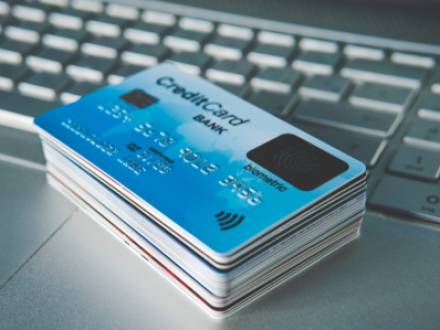When Is Credit Card Fraud a Federal Crime?
 Credit card fraud may become a federal case when it crosses state lines, involves a federally insured bank, or uses interstate wires or mail. Cases often start with alerts from banks or major merchants, and agents may step in when losses seem large or victims span multiple states. If agents contact you or serve a subpoena, pause before answering and speak with a lawyer. Quick, informed guidance from a Dallas, TX credit card fraud defense attorney can help protect your rights.
Credit card fraud may become a federal case when it crosses state lines, involves a federally insured bank, or uses interstate wires or mail. Cases often start with alerts from banks or major merchants, and agents may step in when losses seem large or victims span multiple states. If agents contact you or serve a subpoena, pause before answering and speak with a lawyer. Quick, informed guidance from a Dallas, TX credit card fraud defense attorney can help protect your rights.
What Does Federal Law Say About Credit Card Fraud?
Federal prosecutors can charge people with "access device fraud" under 18 U.S.C. § 1029. This law covers using, making, or selling unauthorized card numbers, counterfeit cards, or skimming gear. It can also apply to possession of fifteen or more account numbers or tools used to make fake cards. The penalties can be steep, and they rise with the amount of money involved and the number of victims.
Schemes that rely on email, text, online stores, or payment portals may be charged as wire fraud under 18 U.S.C. § 1343. The government must prove there was a plan to defraud and that interstate wires were used. When someone else’s identity, such as a name, login, or account, is used, prosecutors may add aggravated identity theft to the charge, which carries a mandatory two-year prison term that must run after any other sentence.
Examples of Federal Credit Card Fraud
Common crimes that can trigger a federal investigation include:
-
Skimming and shimming: Installing devices on gas pumps or ATMs to capture card data, then making counterfeit cards
-
Card-not-present purchases: Using stolen numbers for online orders shipped across state lines
-
Account takeovers: Phishing or credential stuffing to access a card portal and change addresses or add users
-
Trafficking in numbers: Buying or selling card data on forums or encrypted apps
-
Subscription or micro-charge scams: Auto-billing many small charges to hide fraud and reduce disputes
-
Inside jobs: Employees copying card data at a restaurant or store and sending it to partners
How Do You Fight Federal Credit Card Fraud Charges?
A strong defense often begins with intent and permission. Your attorney may look for proof that you did not intend to defraud anyone and that what happened was the result of a mistake, mix-up, or good-faith charge. Evidence that a cardholder, employer, partner, or family member authorized the transaction can turn an accusation into a misunderstanding.
Identity and access issues come next. Many prosecutions hinge on who actually used a phone, IP address, or login. If another person, such as a roommate, coworker, or hacker, had access, that doubt can undercut the case. Also, the legality of the search matters. When agents violate your rights, especially your right to be secure from unlawful search and seizure under the Fourth Amendment, the resulting evidence may be suppressed.
Contact a Dallas, TX Credit Card Fraud Defense Attorney Today
If you are under investigation or have already been charged with federal credit card fraud, our team at Spencer & Associates can help. We have guided clients through high-visibility fraud matters and understand how to manage complex media and agency scrutiny without losing focus on the facts.
We look for ways to end cases early through focused negotiations and clear presentations. However, if a trial is the best path, we are ready to fight in federal court. As experienced Dallas, TX credit card fraud lawyers, we also handle asset forfeiture and push to return seized funds and property while challenging overbroad claims. Call us at 214-385-8500 today for a free consultation.




